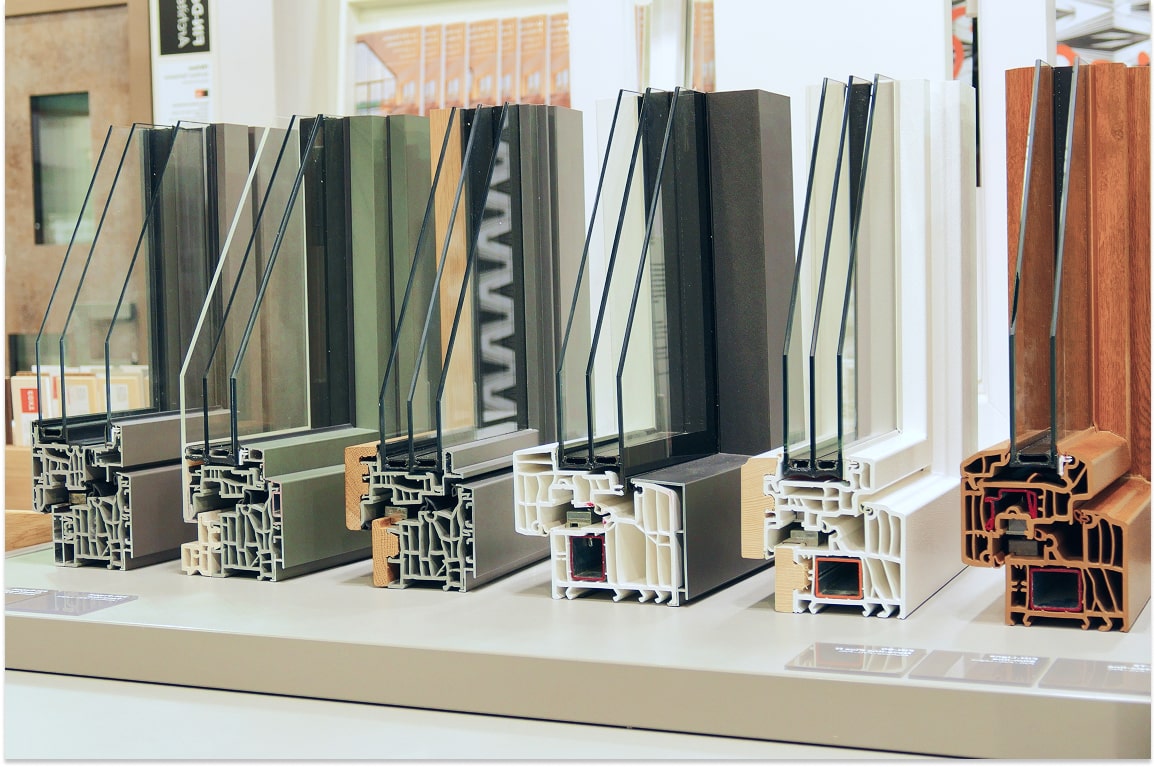How Effective Are Soundproof Windows?
Soundproof windows are rated by their Sound Transmission Class (STC), which measures how well a window blocks airborne sound transmission. Single pane windows typically have an STC rating of 20–25, while soundproof windows can achieve ratings of 40–50 or higher. Higher STC ratings correspond to better sound reduction, with windows rated 55–60 providing optimal sound control for very noisy environments.
| Window Type / Construction |
Glass Thickness (mm) |
Number of Panes |
Gas Fill |
Approximate STC Rating (DB) |
Effectiveness Description |
| Single Pane Glass |
4 mm |
1 |
Air |
20–25 dB |
Minimal sound insulation |
| Double Pane (4-8-4) |
4 + 4 mm |
2 |
Air |
28–32 dB |
Basic noise reduction |
| Double Pane with Different Thickness |
4 + 6 mm |
2 |
Argon or Air |
32–36 dB |
Improved soundproofing due to varied glass thickness and gas fill |
| Laminated Glass + Double Pane |
4 + 0.38 (PVB) + 4 mm |
2 |
Argon |
35–40 dB |
Plastic interlayer absorbs vibrations, reducing noise |
| Triple Pane (4-12-4-12-4) |
4 + 4 + 4 mm |
3 |
Argon or Krypton |
40–45 dB |
High sound insulation, suitable for noisy environments |
| Special Acoustic Windows with Asymmetrical Thickness |
6 + 10 mm |
2 |
Argon or Krypton |
45–50+ dB |
Optimal noise reduction for maximum soundproofing |
Can You Open Soundproof Windows and Still Keep Noise Out?
One common question is whether you can enjoy fresh air without letting outside noise in. Interestingly, new innovations have made this possible. Researchers have developed new windows that allow air to flow through tiny holes while attenuating sound waves. These windows use chambers and diffractions to reduce noise without sacrificing ventilation, ideal for urban dwellers wanting fresh air without the road noise. For those who prefer closed windows, window inserts or sound dampening curtains can further enhance sound reduction for a noticeable difference.
Why Invest in Soundproof Windows?
Beyond sound reduction, soundproof windows offer several benefits:
- Improved Sleep and Mental Health: Reducing noise levels can enhance sleep quality and reduce stress.
- Increased Privacy: Soundproofing methods help keep conversations inside your home private.
- Energy Efficiency: Low-E (low emissivity) gas-filled pane windows and tight seals improve insulation, lowering air conditioning costs and helping you save money.
- Property Value: Energy-efficient, high-performance residential windows can boost your home’s market appeal.
What Should You Look for When Buying Soundproof Windows?
When selecting soundproof windows, consider these features to ensure they’re the best option for your needs:
- Laminated glass or tempered glass with thickness between 6mm and 12mm
- Dual pane windows or triple pane windows with wide gaps or gas fills
- Frame material made from durable, well-sealed materials like PVC or fiberglass
- High STC ratings (40 or above)
- Acoustic caulk and gaskets to eliminate gaps
- Window size and custom-made options to fit your home
- Low-E coatings for added energy efficiency
How Much Do Soundproof Windows Cost?
The soundproof windows cost varies based on factors like window size, frame material, labor costs, and the number of pane windows. On average, expect to pay per square foot for double pane windows or triple pane windows, with custom-made options or window inserts potentially increasing costs. While the initial investment may seem high, the cost-effective benefits of energy efficiency and reduced noise levels make it worthwhile.
Soundproof windows are a smart investment for anyone seeking a quieter, more comfortable home. By combining multiple glass panes, gas fills, sealed window frames, and innovative designs, these windows create an effective barrier to completely block unwanted outside noise, letting you enjoy peace without sacrificing natural light or fresh air. For added sound control, consider pairing with sound dampening curtains or foam plugs for maximum effect.
If you’re ready to experience the peace and quiet that soundproof windows can bring, explore our range of high-quality, stylish soundproof windows designed to fit any home or project. Whether you need custom sizes, superior acoustic performance, or elegant designs, we have the perfect solution for you quaiet home with our sound proof windows.
Take the first step toward a quieter, more comfortable home today!


